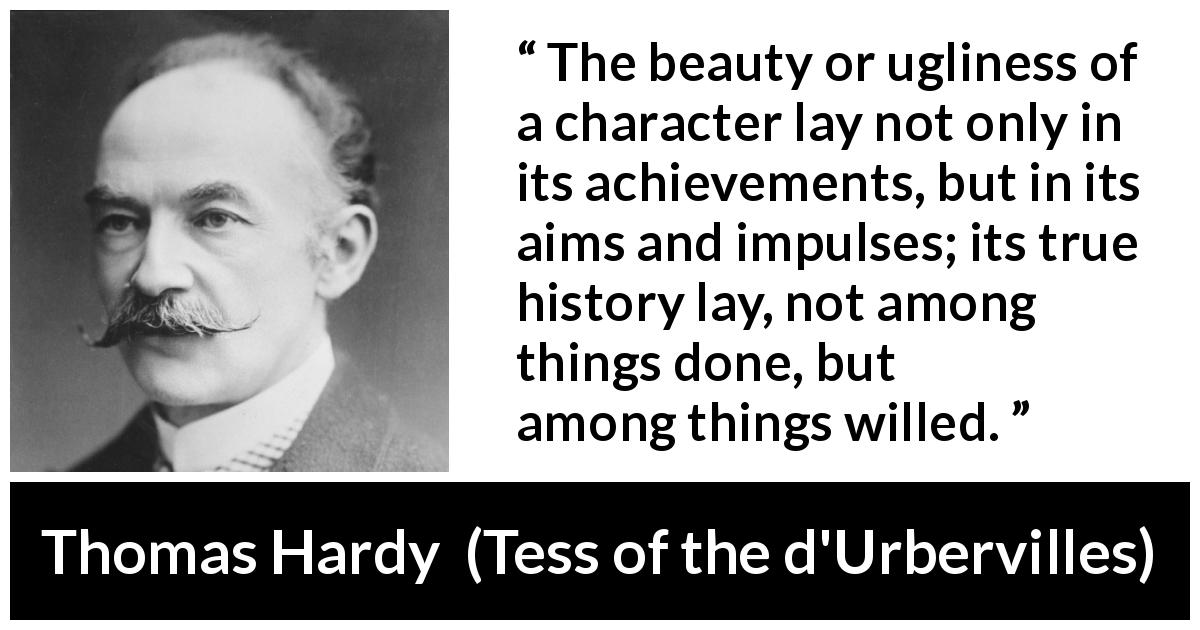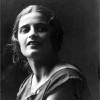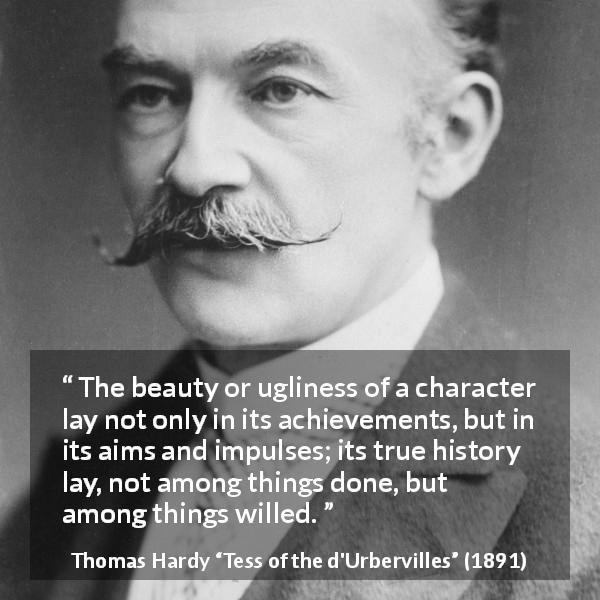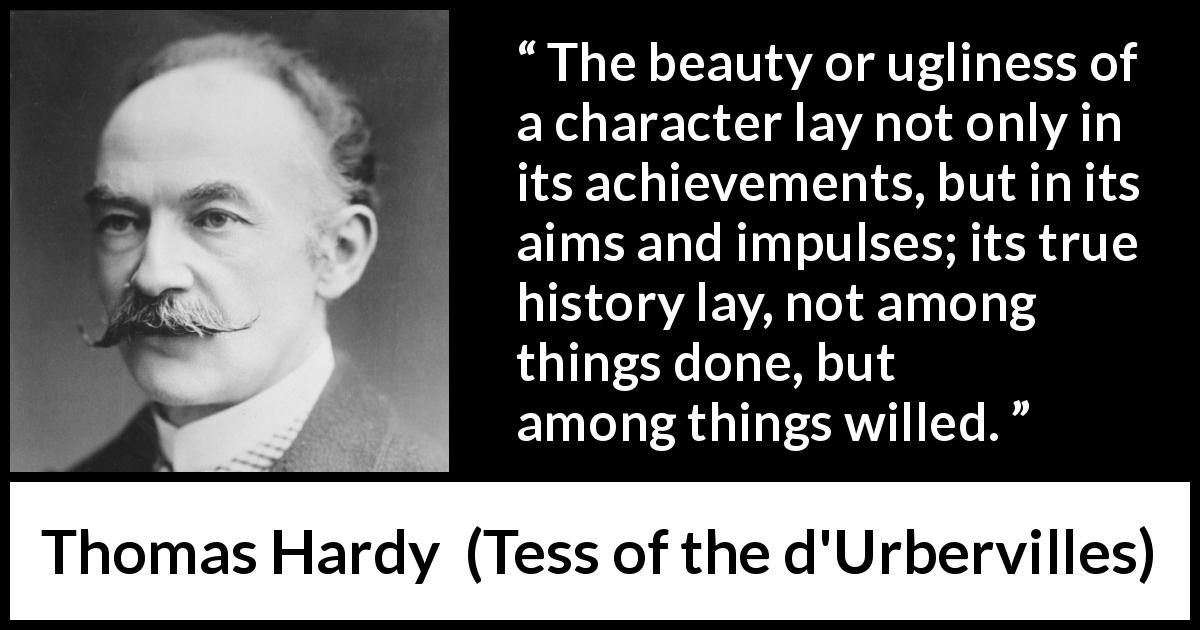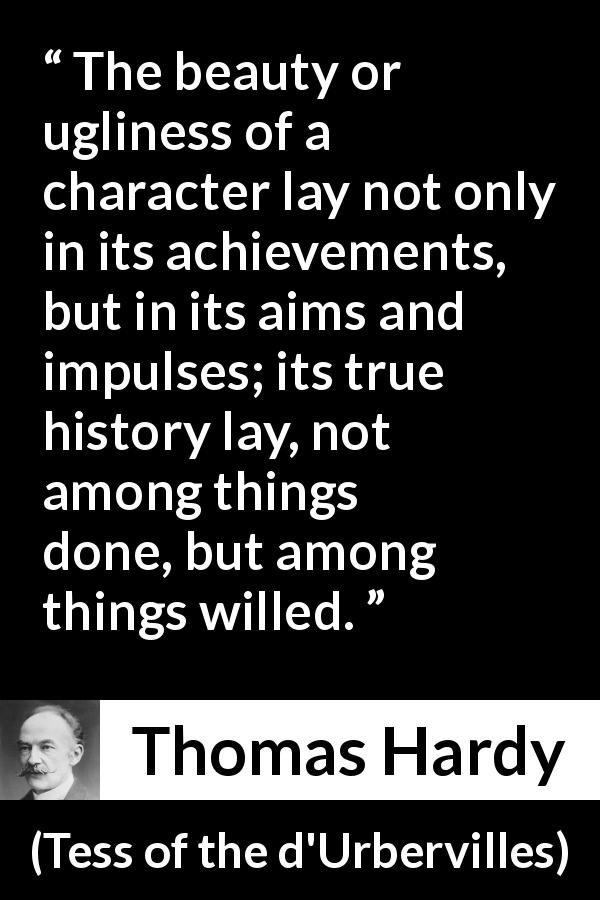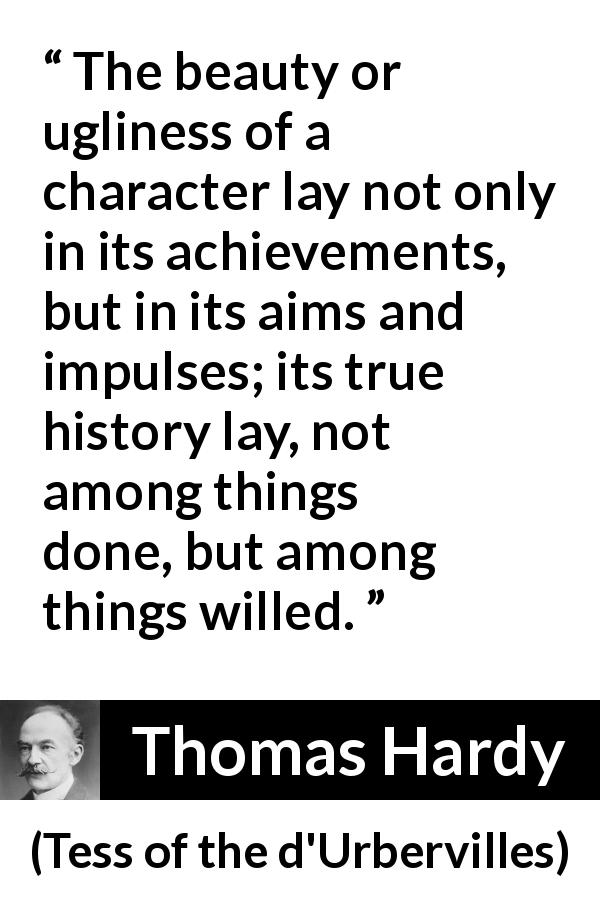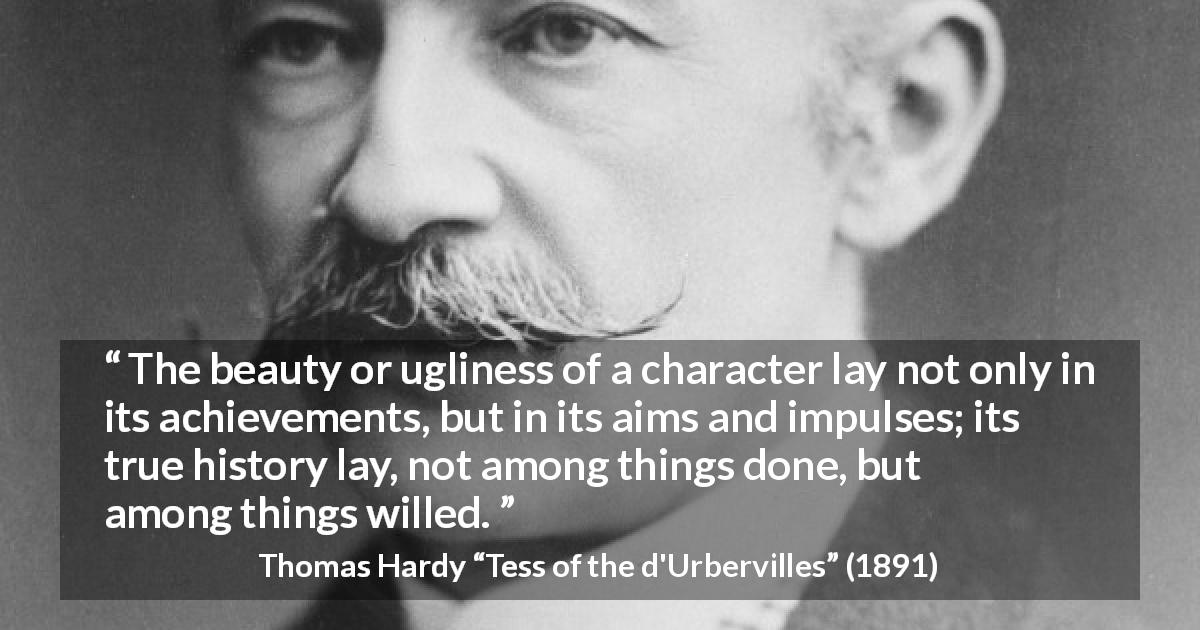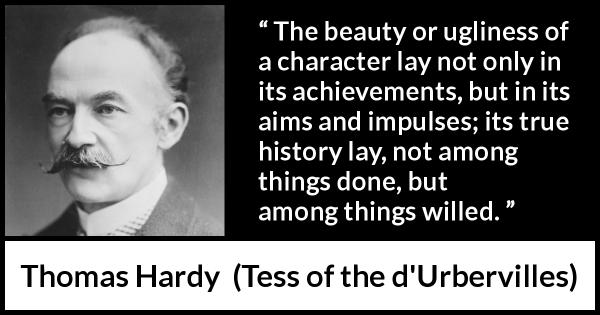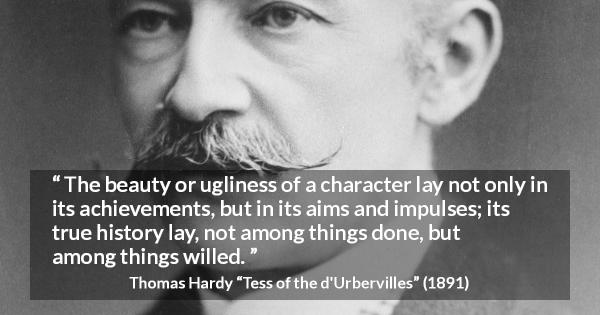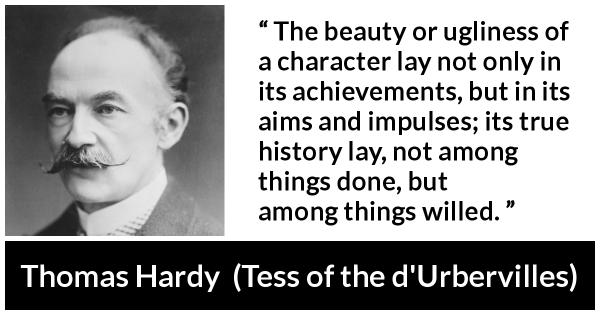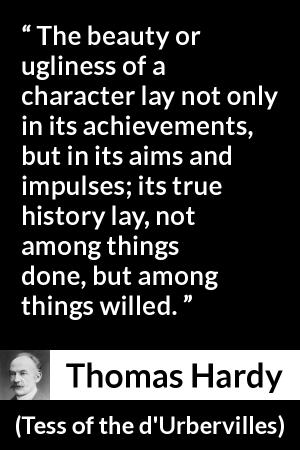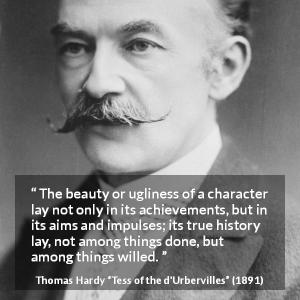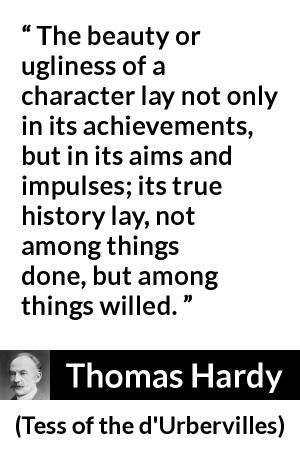“ The beauty or ugliness of a character lay not only in its achievements, but in its aims and impulses; its true history lay, not among things done, but among things willed. ”
Thomas Hardy, Tess of the d'Urbervilles (1891). copy citation
| Author | Thomas Hardy |
|---|---|
| Source | Tess of the d'Urbervilles |
| Topic | will achievement character |
| Date | 1891 |
| Language | English |
| Reference | |
| Note | |
| Weblink | http://www.gutenberg.org/files/110/110-h/110-h.htm |
Context
“Having long discredited the old systems of mysticism, he now began to discredit the old appraisements of morality. He thought they wanted readjusting. Who was the moral man? Still more pertinently, who was the moral woman? The beauty or ugliness of a character lay not only in its achievements, but in its aims and impulses; its true history lay, not among things done, but among things willed.
How, then, about Tess?
Viewing her in these lights, a regret for his hasty judgement began to oppress him. Did he reject her eternally, or did he not? He could no longer say that he would always reject her, and not to say that was in spirit to accept her now.” source
How, then, about Tess?
Viewing her in these lights, a regret for his hasty judgement began to oppress him. Did he reject her eternally, or did he not? He could no longer say that he would always reject her, and not to say that was in spirit to accept her now.” source
